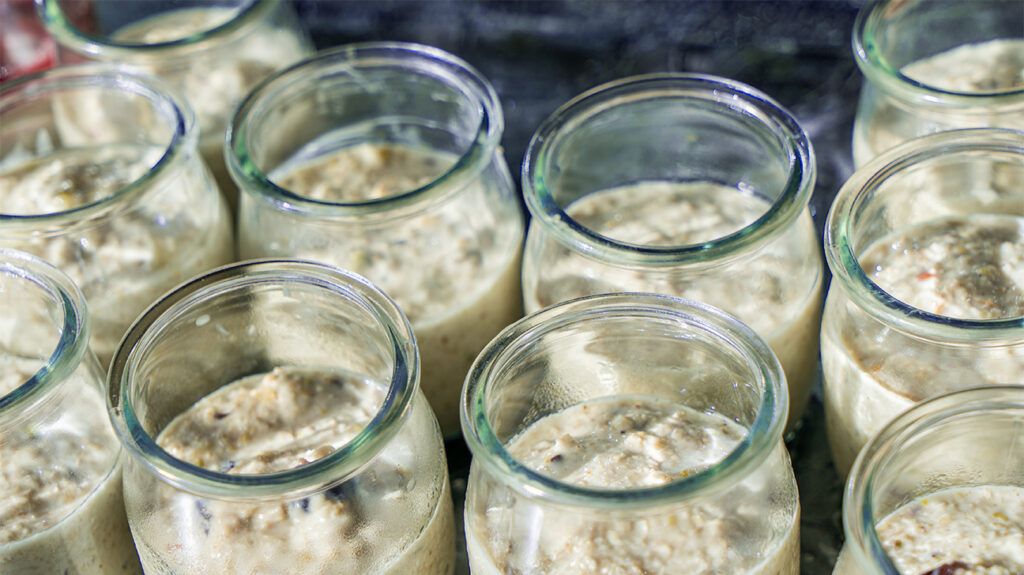
- People whose diet contained fewer processed foods lost more weight than people who ate more ultra-processed foods, a recent study confirmed.
- While both groups lost weight, those eating less in the way of processed foods shed twice as many pounds.
- The key to weight loss in both groups was likely that they both consumed a well-balanced diet, with the only difference being the amount of ultraprocessed foods they consumed.
People who ate a diet of minimally processed foods lost twice as much weight as other people consuming ultra-processed foods in a new randomized crossover trial.
Both groups shed pounds during the weight-loss trial, in which all participants followed a diet based on the UK Eatwell Guide. The only difference between their diets was the proportion of processed foods they contained.
The people in the minimally processed foods group lost twice as much weight as those in the ultra-processed foods group, suggesting that eating less processed foods can better help one maintain a healthy weight.
Participants on a minimally processed foods diet consumed 289.9 fewer calories per day, and lost 2% of their body weight on average. According to the study authors, this could amount to as much as a 13% weight loss for men and 9% for women over a period of 1 year.
People eating ultra-processed foods reduced their daily calorie intake by less, 119.5 calories, and lost 1% of their weight over the course of the trial.
At the outset, the authors of the study ran a battery of tests on all 55 participants, capturing measurements for a comprehensive suite of health metrics.
Individuals were divided randomly into either the minimally processed or ultra-processed foods group, and followed the corresponding diet for 8 weeks.
While the individuals could choose what to eat, they chose from food delivered to them by the researchers that matched both the Eatwell profile and the minimally processed foods/ ultra-processed foods group to which they had been assigned.
The food they received contained more calories than they needed, and they were instructed to eat as much as they wanted. Participants regularly responded to questionnaires on which they reported their food cravings.
Michelle Routhenstein, MS, RD, CDCES, CDN, a preventive cardiology dietitian at EntirelyNourished, who was not involved in the study, commented to Medical News Today that “the free-living setup makes the findings more realistic but also introduces variables that are hard to control, so while the results seem compelling, they should be interpreted with caution.”
Individuals on the minimally processed foods diet reported greater success at resisting cravings, although they were the group that turned out to be losing the most weight.
After 8 weeks, a 4-week washout period took place, during which participants returned to their normal diet. This was followed by a 2-week baseline period in which the researchers performed additional health tests to observe the effects of individuals’ 8-week minimally processed foods or ultra-processed foods experience.
Following this break, participants switched sides, with the individuals in the minimally processed foods group moving to the ultra-processed foods diet and vice versa for another 8 weeks.
At the end of those 2 months, the researchers once more assessed both groups’ health metrics.
“The study’s crossover design and use of a washout period strengthened its internal reliability, and coaching likely improved adherence,” noted Routhenstein.
“However,” she said, “reliance on self-reported food diaries and the exclusion of certain dietary groups limit generalizability.”
Unexpectedly, the researchers found that the ultra-processed foods diet was associated with a lower LDL (“bad”) cholesterol level. Ultra-processed foods are often criticized for adding unhealthy elements into a person’s diet.
Routhenstein described this finding as “unusual,” saying that it “doesn’t align with most existing research.” She noted, however, that “it may reflect the specific types of ultra-processed foods consumed, such as those lower in saturated fat or fortified with cholesterol-lowering ingredients.”
“This underscores the importance of considering the full dietary context rather than judging foods by broad categories alone,” Routhenstein suggested.
It is likely that the reason both groups lost weight is that they both ate sensibly.
According to Routhenstein, “a balanced, nutrient-dense diet, such as the one outlined in [United Kingdom] guidelines, helps to support weight management, metabolic function, heart health, and healthy aging by providing the essential nutrients the body needs.”
“While ultraprocessed foods are often linked to poor outcomes,” she said, “what we choose to include in our diet may matter even more than what we avoid.”
MNT also spoke with Mir Ali, MD, medical director of MemorialCare Surgical Weight Loss Center at Orange Coast Medical Center in Fountain Valley, CA, who was not involved in this study.
“What we recommend to our patients, and what is the basis for most successful diets, is reducing carbohydrate and sugar intake and emphasizing protein and non-starchy vegetables in the diet. Minimizing carbohydrates and sugars helps direct the body towards burning fat.”
“Ultraprocessed foods,” he cautioned, “tend to have additional additives that can be detrimental, so it is better to minimize these foods as well. Therefore, having the proper nutrients and a good source are both important.”
“It’s also,” added Routhenstein, “important to consider the nutritional quality of individual foods, as not all [ultra-processed foods] are the same, and broad labels can miss meaningful differences in the nutritional composition, and therefore health impact.”
“While ultra-processed foods may not directly hinder weight loss, prior research has linked them to poor metabolic health, increased cardiovascular risk, higher mortality, and negative impacts on gut health,” Routhenstein told us.
“Their engineered flavors, low satiety, and high palatability can lead to overeating, and they often contain additives, preservatives, or contaminants with unknown long-term effects,” she explained.
While ultra-processed foods still afforded study participants a measure of weight loss, the trial “did show a benefit of minimally processed foods over ultra-processed foods,” Ali further noted.
Diet shakes are one type of processed food that may be of value in healthy dieting — with some caveats — said Ali. They “can be helpful for weight loss, provided they have the right ingredients.” He cited “smoothies with a lot of fruit, though not ultraprocessed.“
“Low-sugar shakes that are high in protein can be beneficial, but not ultraprocessed [shakes, which] will not help weight loss due to sugar content,” he added.
Source link
